Athlete Melise Edwards achieves more than most humans in a typical 24-hour day. In addition to being a sponsored rock climber, she’s a dedicated neuroscience researcher who is hard at work demystifying the complexities of the human brain.
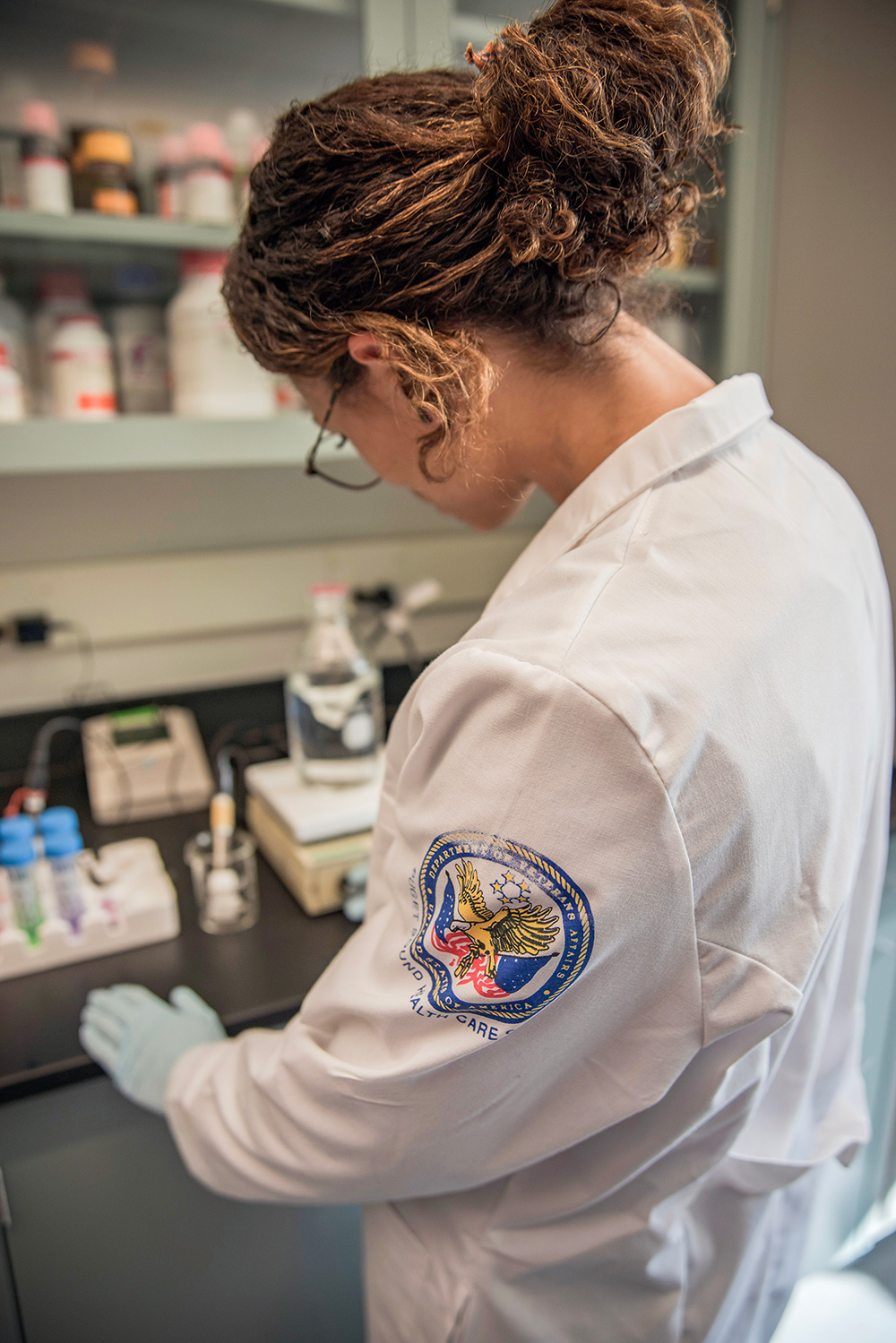
Photo Credit: Meghan Young
By day, Edwards works as a neuroendocrinology lab manager in Seattle studying the relationship between the nervous system and the brain. By night, she’s taking online classes and applying to doctorate programs for cognitive neuroscience. She ultimately hopes to “serve populations of people in need and mentor aspiring scientists, especially women and men of color who are vastly underrepresented in neuroscience and STEM graduate programs.” The 28-year-old also somehow finds the time to volunteer with at-risk kids. What drives her? “Passion and the desire to help others,” she said.
To balance all of her commitments, Edwards lives by her phone’s calendar. But she doesn’t let the hectic schedule deter her. “Ultimately I think it comes down to knowing exactly what you want to prioritize when it comes to your time. If you know in your heart what you want, it will seldom feel like a sacrifice to spend more time in one arena than another.”
We were fortunate enough to get some coveted time in Edwards’ schedule, and spent a day tackling bouldering problems with her in Leavenworth, Washington. While we climbed, she let us pick her brain on a range of topics—from how she got her start to what she’s most passionate about. Spoiler alert: volunteering, neuroscience and ice cream top the list.
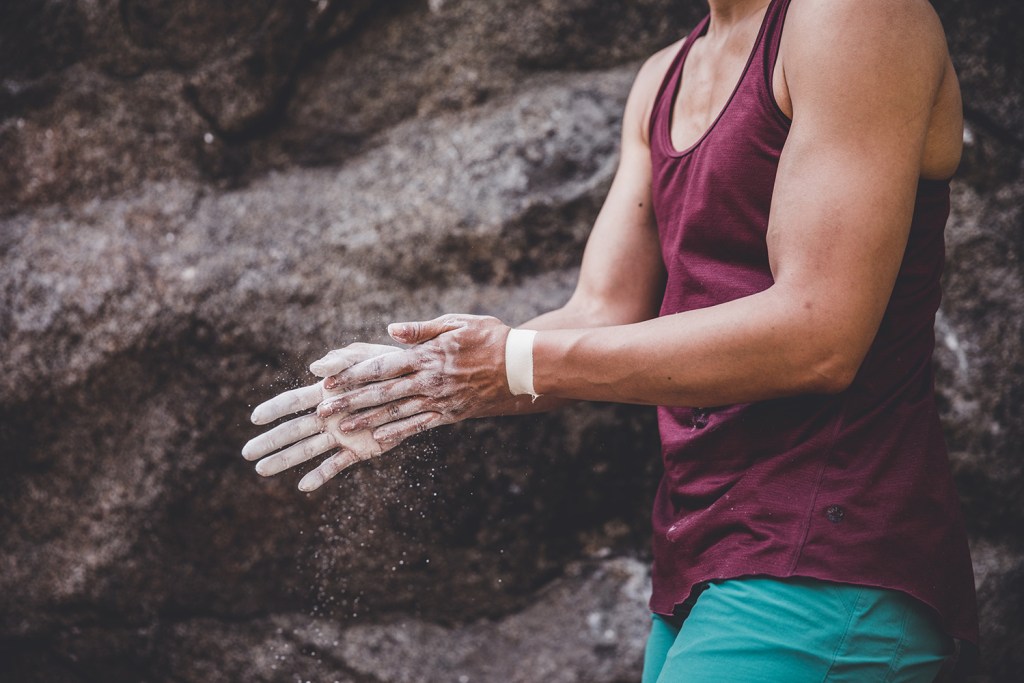
On how she started climbing: Born in Chapel Hill, North Carolina, Edwards didn’t grow up climbing. “My mom and my sister started climbing before me,” she said. “I did a high school senior project on the psychology of risk and the ability of extreme athletes to put themselves in risky or fearful situations. I turned to climbing for that project and spent a few months climbing in the gym with a mentor, then going outside on an easy four-pitch slab route in Pisgah National Forest. I was hooked!”
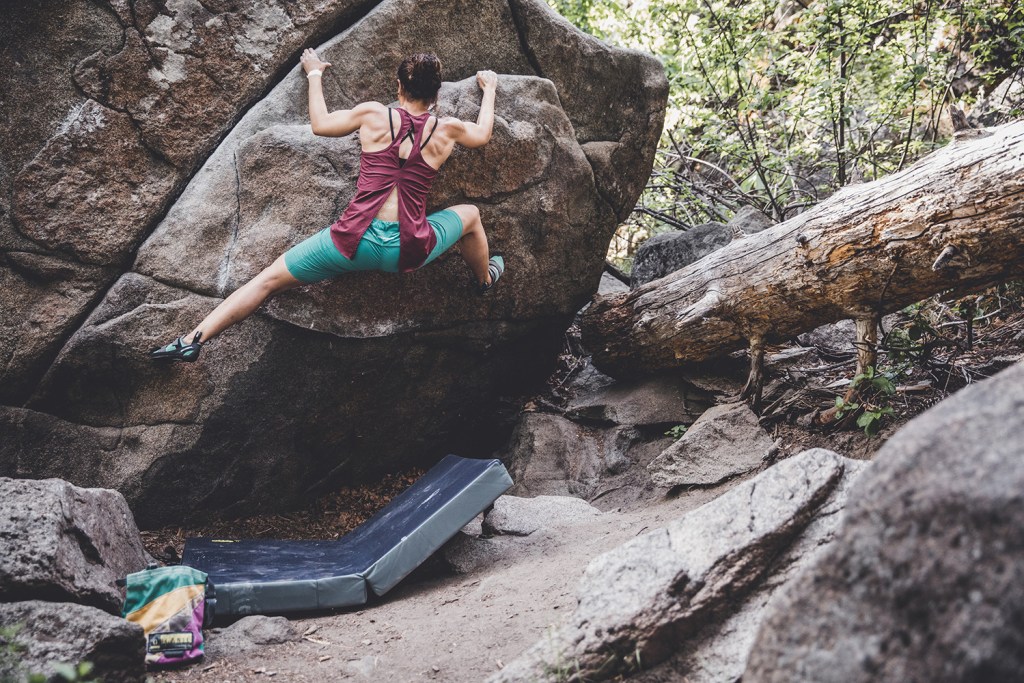
On why she’s never without her favorite gear: Now an accomplished and sponsored boulderer, Edwards can be found climbing at her favorite spots in Gold Bar, Washington, Red Rocks, Nevada, and around her home stomping grounds in Boone, North Carolina, always with her trusty Organic Climbing crash pad, because she said, “One, I fall a lot and, two, it’s perfect for crash pad naps at the crag!”
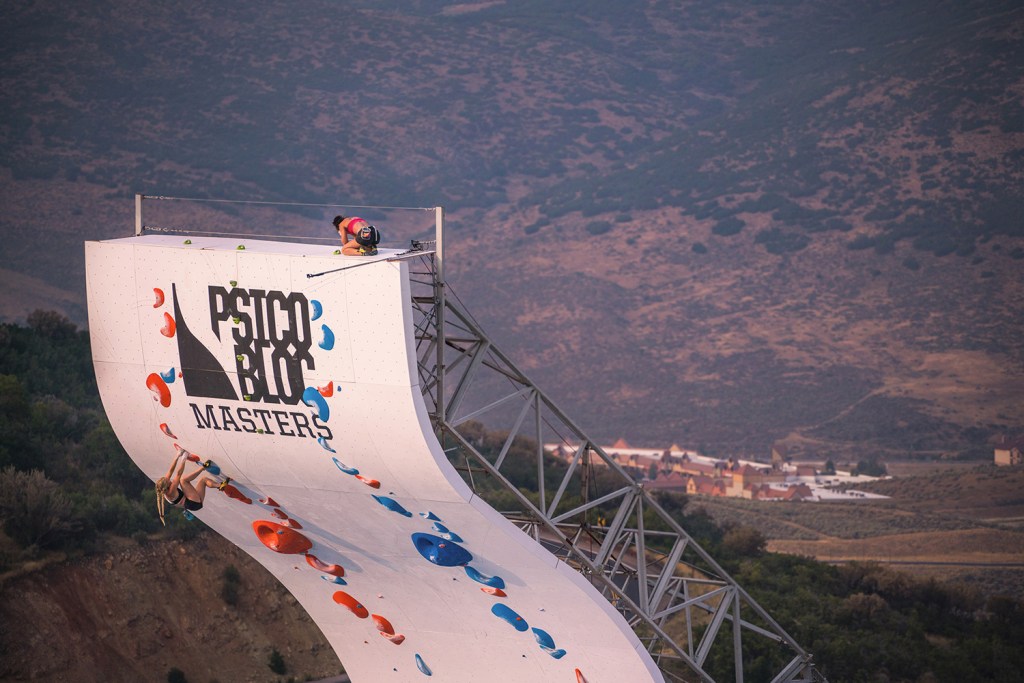
Photo Credit: Kevin Smith
On how mental prep is just as important as physical conditioning: Edwards occasionally competes, most recently in the Psicobloc Masters Series, her first deep-water soloing competition in Park City, Utah. Ironically, she has a fear of heights so mental prep was as critical for this event as physical training. “I prepared by going to the gym, climbing routes and practicing taking lead falls,” she said. “I also did a lot of reading from The Rock Warrior’s Way, which talks about positive imagery, confidence, commitment to a goal, and taking ego out of the equation and pursuing excellence regardless of the outcome or how successful you might be. It really helped to be genuinely excited about the event and tackling a big fear of heights.”
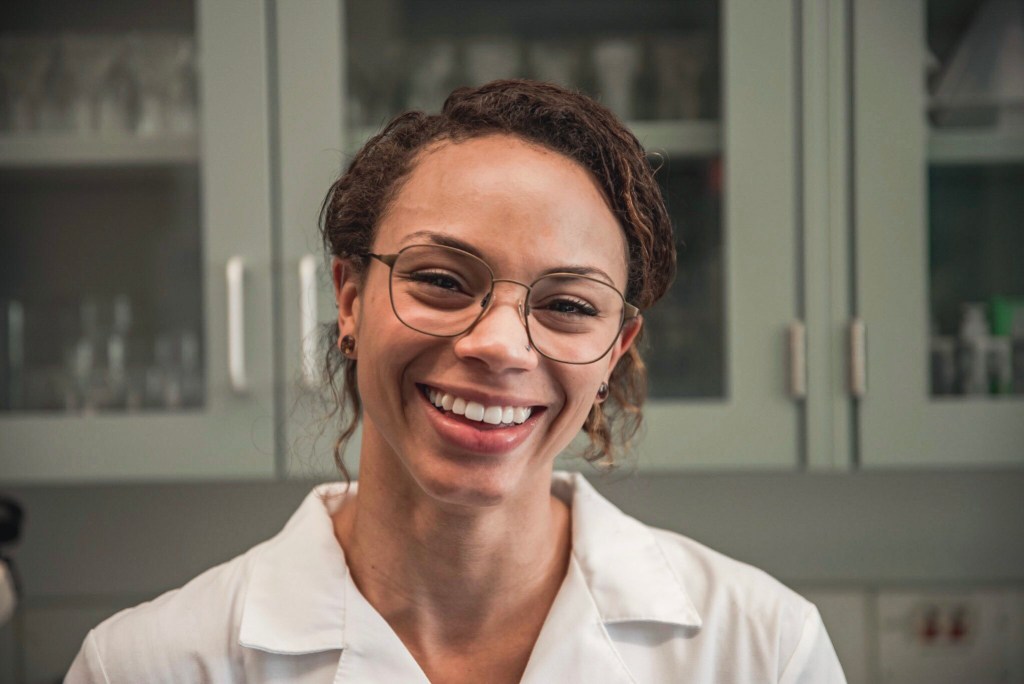
Photo Credit: Meghan Young
What she does when she’s not on the crag: Though climbing commands much of her time, it isn’t the focus of her future goals. Edwards’ professional sights are set on earning a doctorate in cognitive neuroscience, because, she said, “I cannot think of anything more exciting or deeply relevant to us all than understanding the inner workings of the brain.” She sees climbing as a way to help others rather than as a job. “I may compete from time to time and chase the occasional lofty goal, but ultimately I want to volunteer more with organizations like Vertical Generation who strive to bring climbing to underserved populations,” she said.
On what drives her: Edwards serves on the board of the Seattle-based nonprofit, which introduces middle and high schoolers to rock climbing and pairs aspiring young climbers with mentors through its Stonemasters program. Vertical Generation mentors take the kids camping and climbing, an experience many of them wouldn’t have access to otherwise. “Working with these kids has been amazing,” Edwards said of her work as a mentor. “I want to give those positive experiences of self-actualization, confidence, outdoor recreation and joy to those who may otherwise not have the chance.”
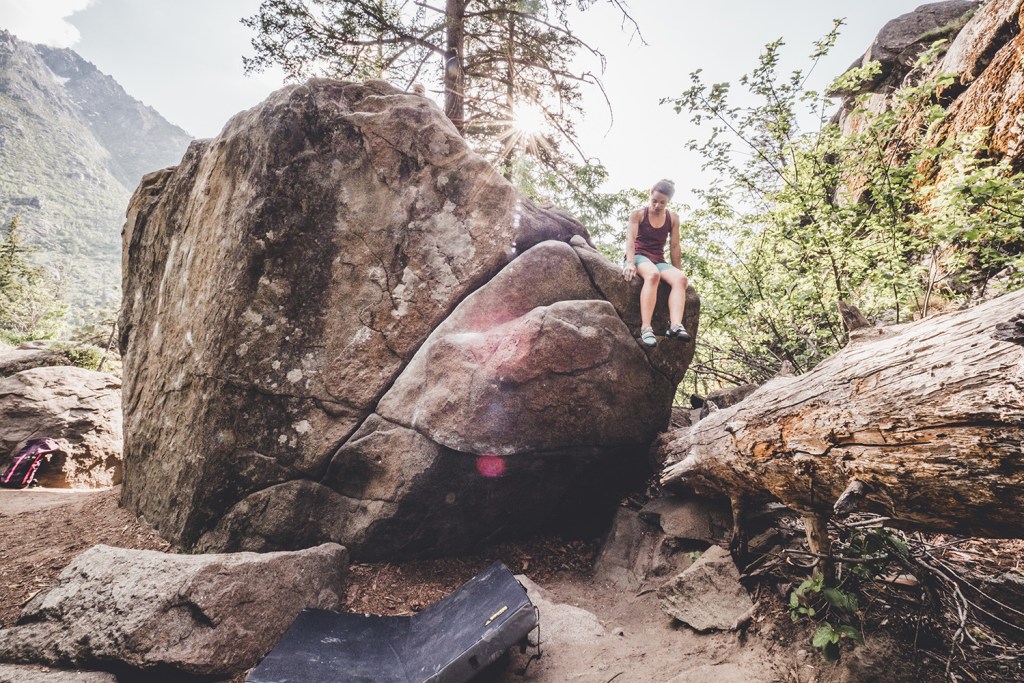
On the importance of representation: Edwards understands the challenges faced by those who don’t see themselves in the outdoors. As a woman and a minority, she has dealt with more than her share of adversity. “There are things I have noticed the harder I’ve climbed and the more visible I have become,” she noted. “From online trolling, to unwanted beta, to assumptions on how or what difficulty you might want to climb based on your gender—the list goes on. Being an African-American woman is even more challenging because of the people ready to tell you that your experiences aren’t valid because they can’t see or empathize with such a vastly different experience.”
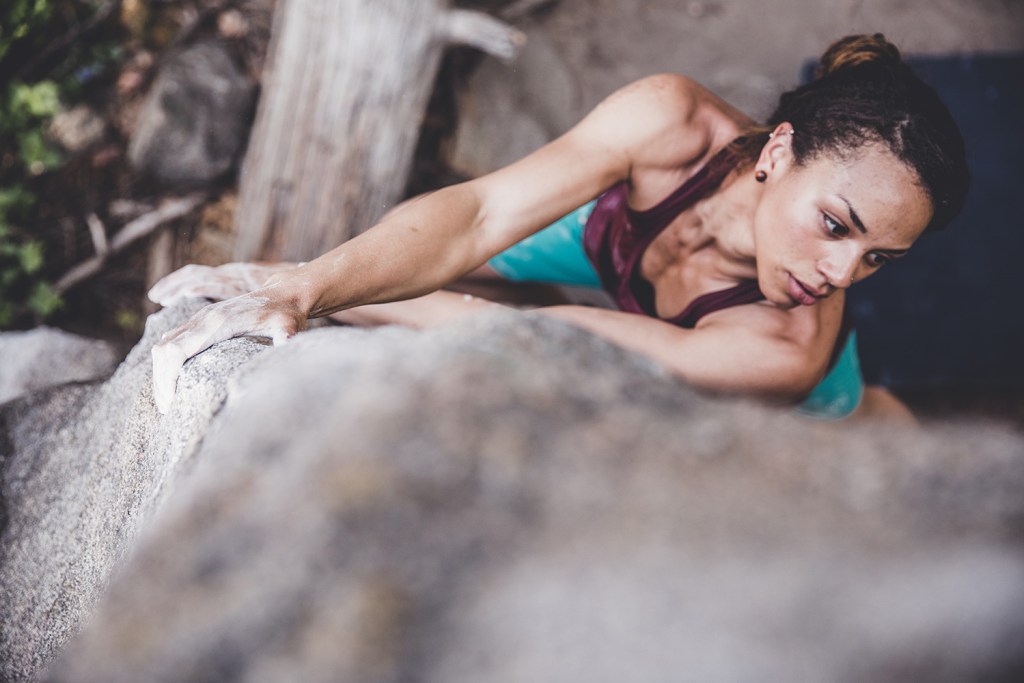
Rather than letting these interactions hold her back, Edwards has become a powerful champion of diversity in climbing, the outdoors and science. “Representation is everything. It is so important to see someone who looks like you not only surviving, but thriving in a given community,” she said. “It is powerful to see a role model in your given community, career, sport or hobby; someone you identify with in a multitude of ways who makes you feel like you belong to that given community. Too often … we have minorities who feel extremely alienated or like the only one in their homogenous careers or hobbies. You do not have to be a pencil-thin, short, able-bodied, straight, white man or woman to be a rock climber. This is important.”
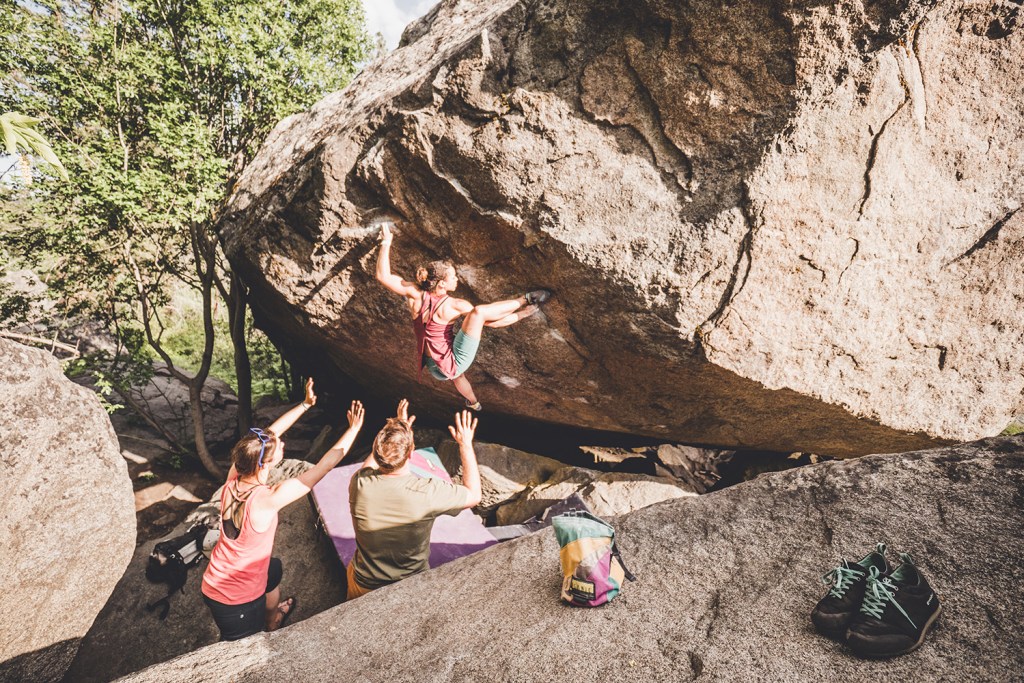
On how she maintains momentum: Though climbing develops strength, in both body and mind, Edwards has always had a wellspring of strength around her. She credits many people, especially her family, as being role models who keep her going in the face of challenges and negativity: “My mother, for always working so hard, being so positive and giving back to the community in everything she does. My dad, for being so crazy intelligent and always retaining his sense of humor. My my sister, for being so independent in thought, art and action.” She added, “I also really admire the founders of Vertical Generation, Julie Gardner and Marc Bourguignon, for seeing a need in the community and making it happen. And so many of my friends who have pursued Ph.D.s, created their own nonprofits, and have shown it is possible to invest in yourself and invest in something bigger than yourself simultaneously.”
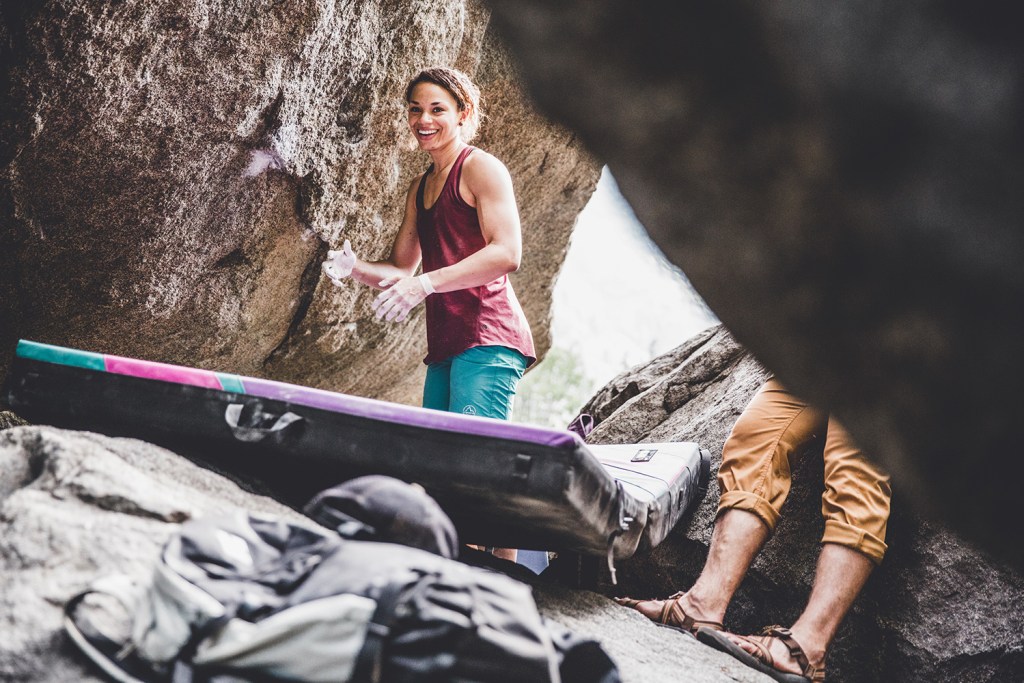
Between climbing, working, volunteering and classes, it sometimes seems like she never has a free moment, but Edwards always finds the time for two of her favorite things—reading and eating sweets. When asked about the best piece of advice she ever received, she credited her boyfriend with these wise words: “Definitely get that second pint of ice cream.”
Editor’s note: An earlier version of the story, published on September 20, included the following opening paragraph: “When you ask the average rock climber what their day job is, you probably don’t expect to hear ‘neuroscience researcher.’ But Melise Edwards isn’t your average climber—her analytical mind is perfectly suited to solving challenging boulder problems and demystifying the complexities of the human brain.” In publishing the original version of the story, the Co-op Journal sought to shed light on and celebrate Edwards’ accomplishments. As a sponsored climber, brain scientist and dedicated volunteer, Edwards has achieved more than many of us could hope to accomplish in a lifetime. Following feedback from our community, the story was edited on September 24 to more accurately reflect that sentiment.


